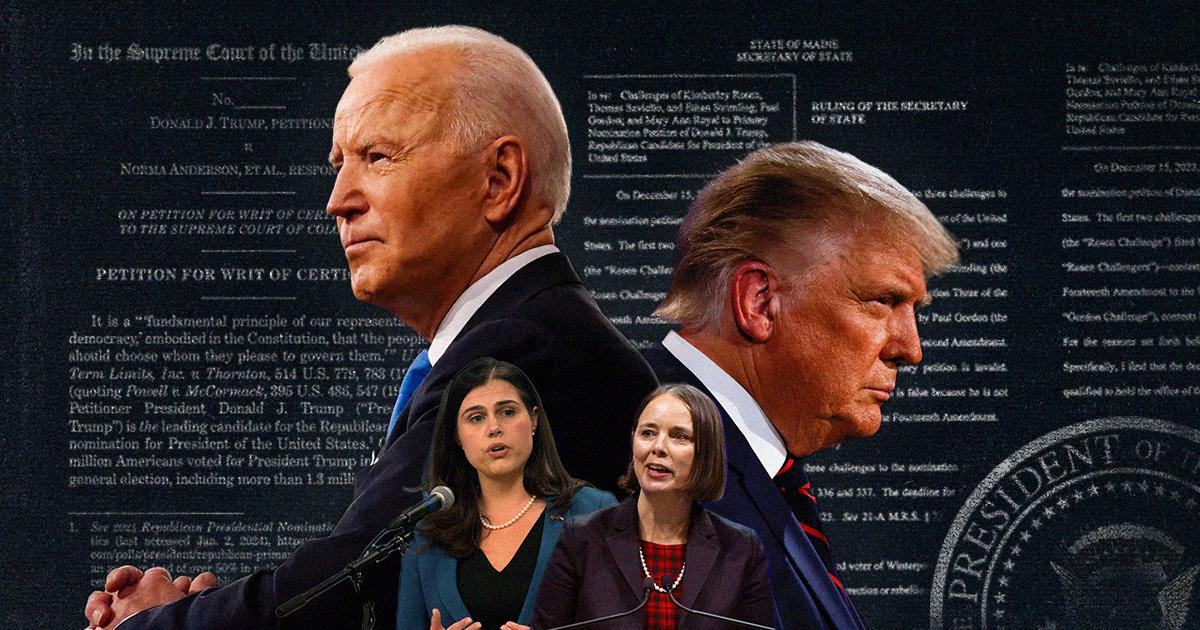
Two weeks ago, I wrote an article laying out the political class’s struggle to preserve its legitimacy by fighting to regain control over the digital information space. The piece built on Martin Gurri’s thesis that the wide adoption of the internet has caused an information revolution that, similar to the adoption of the printing press, has allowed dissent to grow and spread beyond the control of the ruling classes. The results have been political shocks like the Arab Spring, the passage of Brexit, and the election of Donald Trump.
If the twenty-first century has been a war to preserve the establishment’s legitimacy, the current battle in the United States is the 2024 presidential election.
There’s truth to the familiar cliché that the next election is always the most important in history. As the federal government grows, spends more of our money, and intrudes more in our daily lives, the stakes of elections get higher and higher.
That still holds true for 2024, but there is much more going on. In Anatomy of the State, after defining the state as the “organization in society which attempts to maintain a monopoly of the use of force and violence in a given territorial area,” Murray Rothbard dedicates a chapter to how states preserve themselves.
In Rothbard’s words:
While force is [the ruling class’s] modus operandi, their basic and long-run problem is ideological. For in order to continue in office, any government (not simply a “democratic” government) must have the support of the majority of its subjects. This support, it must be noted, need not be active enthusiasm; it may well be passive resignation as if to an inevitable law of nature. . . . Therefore, the chief task of the rulers is always to secure the active or resigned acceptance of the majority of the citizens.
In the United States, the political establishment has for many years evoked democracy to legitimize its actions in the eyes of the public. Doing so transforms any action they take into an embodiment of the people’s will and any opposition into a selfish denial of everyone else’s wishes.
But the internet allowed the public to see that many views and beliefs that had been presented as fringe were in fact popular—often even more popular than so-called mainstream ideas.
That revelation bolstered the antiestablishment movements of the 2010s—Occupy Wall Street, the Tea Party, the Ron Paul Revolution, and Trump’s 2016 campaign. And it sent the political establishment into a crisis of legitimacy.
Tens of millions of Americans sent Donald Trump to the White House in one of the biggest repudiations of the established political class in American history. In response, instead of reflecting on why so many Americans were so fed up with them, the establishment decided to frame Trump as the root cause of all the nastiness and hostility aimed their way. According to them, one man was corrupting America with hate, greed, and Russian propaganda.
That thinking has culminated in years of establishment attempts to remove Trump from power and later to bar him from ever holding office again. First, there was discussion of ousting him using the Twenty-Fifth Amendment. Then came the attempt to tie him to Russian intelligence. Next, they tried to impeach him twice. Finally, they charged him with felonies. Now some states are attempting to remove him from the 2024 ballot for a crime he hasn’t even been charged with.
The establishment is unwilling to admit that they are the reason Trump was elected. But, ironically, by attempting to disqualify him from participating in the election, they undermine the illusion of democracy—their main source of legitimacy in the eyes of many Americans. It’s hard to see how that will go well for them.


